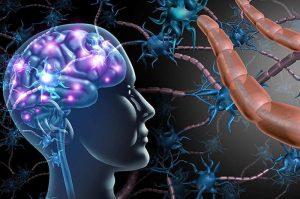Atlantis Bioscience, March 12, 2024
Mesenchymal stem cells (MSCs) play an important role in restoring tissue homeostasis by stimulating repair processes after injury and modulating the recipient’s immune response. MSCs migrate to damaged tissue, trauma, or sites of inflammation in response to the chemo-attractant molecules released by inflammatory cells. Likewise, the tumour environment consists of a large number of immune cells, which alongside tumour cells, secrete soluble factors attracting MSCs. Following accumulation at the sites of tumour formation and growth, MSCs become part of the tumour stroma, by differentiating into stromal cells such as the cancer-associated fibroblasts.
It’s important to note that the exact role of MSCs in tumours can vary depending on the type of tumour, the stage of tumour development, and other factors. While some studies suggest a tumour-promoting role for MSCs, others indicate potential antitumour effects. The dual nature of MSCs in tumour microenvironments underscores the complexity of their interactions with cancer cells and surrounding tissues.
Unlocking MSC Potential: Precision Cancer Therapy Strategies
Despite reports of tumour-promoting properties, MSCs offer unique characteristics for cancer therapeutic applications:
- Tumour tropism:
MSCs can migrate towards tumour sites, a phenomenon known as tumour tropism. This characteristic can be exploited for targeted delivery of therapeutic agents to tumours. Researchers are exploring ways to load MSCs with anticancer drugs, oncolytic viruses, or other therapeutic payloads, allowing for more precise and localised treatment.
- Immunomodulation:
MSCs possess immunomodulatory properties, which can be harnessed to modulate the immune response in the tumour microenvironment. This characteristic is being investigated for its potential in immunotherapy approaches. MSCs may be engineered to enhance their immunosuppressive effects, promoting an environment that is less supportive of tumour growth.
- Low immunogenicity:
MSCs possess a notable characteristic of low immunogenicity, attributed to the absence of co-stimulatory molecule expression. This feature eliminates the necessity for immunosuppression during allogeneic transplantation.
- Tissue repair and regeneration:
MSCs can differentiate into various cell types, including those involved in tissue repair and regeneration. This regenerative potential is being explored in the context of cancer therapy, especially in addressing tissue damage caused by cancer treatments such as radiation and chemotherapy.
- Modulation of the tumour microenvironment:
MSCs can influence the tumour microenvironment through the secretion of various factors. While this can have tumour-promoting effects, it is also being studied as a potential means to modify the tumour microenvironment to make it more inhospitable for cancer growth.
Different ways to utilise MSCs as drug delivery vehicle
Given these characteristics of MSCs, MSCs are ideal vehicles for the delivery of various anticancer agents, including chemotherapeutic drugs, nanoparticles, and gene therapies. Below are some of the strategies to utilise MSCs as a delivery vehicle in cancer therapy:
Priming MSCs with Anti-Cancer Drugs
MSCs can be easily primed with anticancer drugs due to their inherent resistance to cytostatic and cytotoxic drugs. MSCs can efficiently take up chemotherapeutic agents such as doxorubicin (DOXO), paclitaxel (PTX), and gemcitabine (GEM) and subsequently release them in a targeted and gradual manner.
Numerous studies have explored the potential of primed MSCs in exerting antitumour effects across various cancer types, including myeloma and leukemia cells. Beyond directly delivering drugs, MSCs can also serve as effective carriers for drug-loaded nanoparticles (NPs) to specific target sites. Originally designed to enhance drug stability, NPs face challenges such as immunogenicity and uneven intratumoral distribution when used alone. Leveraging MSCs as cellular vehicles for drug-loaded NPs addresses these issues, presenting a promising avenue for advancing targeted cancer therapy.
Genetic Modification of MSCs
MSCs provide a versatile platform for advancing targeted cancer therapy through genetic modification, enabling the incorporation of specific genes into these cells. A notable application involves the delivery of suicide genes to MSCs, encoding enzymes like thymidine kinase and cytosine deaminase. These enzymes facilitate the conversion of non-toxic prodrugs such as ganciclovir and 5-Fluorocytosine into active derivatives. Following systemic administration, the engineered MSCs are intravenously infused, selectively homing in on the tumour. Within the tumour tissue, they convert inert prodrugs into cytotoxic metabolites, minimizing off-target toxicity.
The genetic modification of MSCs extends beyond suicide gene delivery. It allows for the production of various therapeutic molecules, including interferons (e.g., IFNα, IFNβ), pro-apoptotic agents (e.g., TRAIL), pro-inflammatory interleukins (IL-2), tumour suppressor genes (e.g., PTEN), antiangiogenic molecules (e.g., Alpha-1 antitrypsin, NK4, VEGFR1), and other anti-tumour proteins (e.g., TNF-α, HNF4-α). These proteins can exert direct effects on tumour cells, inducing apoptosis, and enhance the host inflammatory response through crosstalk with tumour-infiltrating leukocytes.
MSCs as Vectors for Oncolytic Virus
Oncolytic viruses represent a groundbreaking approach in tumour therapy, designed to infect and eliminate cancer cells selectively. This innovative strategy involves viruses that replicate within and destroy tumour cells while sparing normal cells from harm. Additionally, oncolytic viruses stimulate host antitumour immune responses to contribute to the eradication of residual tumours.
Several viruses, including adenovirus, reovirus, measles virus, herpes simplex virus, Newcastle disease virus, and vaccinia virus, have undergone clinical testing as potential oncolytic agents. Despite their promising potential, oncolytic viruses often face recognition and eradication by the host immune system before reaching the tumour sites. To address this challenge, MSCs emerge as valuable carriers for oncolytic viruses. By utilising MSCs as vectors, the survival of oncolytic viruses can be prolonged, and their targeted delivery to the intended site can be optimised.

MSC-Derived Extracellular Vesicles
Extracellular vesicles (EVs) are minute, membrane-bound particles released by cells into the extracellular space, playing a vital role in intercellular communication by transporting bioactive molecules like proteins, nucleic acids, and lipids between cells. Recognizing the therapeutic potential of these natural carriers, researchers are increasingly exploring MSC-derived EVs as a promising vehicle for delivering anticancer agents. The distinct advantages of MSC-derived EVs in cancer therapy include their strong tumour tropism, low immunogenicity, high stability, and amenability to genetic modification for a more targeted response.
Various strategies harness MSC-derived EVs for anticancer drug delivery. One approach involves utilizing EVs from native MSCs, which carry biological molecules capable of influencing tumour cell proliferation, migration, and invasion. Alternatively, MSC cells can be primed with drugs or immunomodulatory molecules, and the subsequent release of EVs efficiently delivers the active agents to the tumour site. Genetic modification of MSCs provides another avenue, enabling them to carry genetic material such as small interfering RNA (siRNA), microRNA, or express anticancer molecules like TRAIL, which can be secreted by MSC-derived EVs. Additionally, EVs can be isolated from MSCs and loaded with drugs or biological cargo through methods such as simple diffusion or electroporation.
Different MSC-based approaches for cancer therapy
It’s essential to note that the use of MSCs in cancer therapy is a rapidly evolving field, and the balance between their potential benefits and risks is an active area of investigation. Researchers are working to better understand the intricacies of MSC interactions with tumours and the surrounding microenvironment to optimise their use for therapeutic purposes. Strategies such as genetic engineering and modification of MSCs are being explored to enhance their safety and efficacy in cancer therapy. Clinical trials are ongoing to evaluate the feasibility and effectiveness of MSC-based approaches in different types of cancers.
References
Chulpanova DS, Kitaeva KV, Tazetdinova LG, James V, Rizvanov AA, Solovyeva VV. Application of Mesenchymal Stem Cells for Therapeutic Agent Delivery in Anti-tumor Treatment. Front Pharmacol. 2018;9:259. Published 2018 Mar 20. doi:10.3389/fphar.2018.00259
Ghasemi Darestani N, Gilmanova AI, Al-Gazally ME, et al. Mesenchymal stem cell-released oncolytic virus: an innovative strategy for cancer treatment. Cell Commun Signal. 2023;21(1):43. Published 2023 Feb 24. doi:10.1186/s12964-022-01012-0
Golinelli G, Mastrolia I, Aramini B, et al. Arming Mesenchymal Stromal/Stem Cells Against Cancer: Has the Time Come?. Front Pharmacol. 2020;11:529921. Published 2020 Sep 29. doi:10.3389/fphar.2020.529921
Lan T, Luo M, Wei X. Mesenchymal stem/stromal cells in cancer therapy. J Hematol Oncol. 2021;14(1):195. Published 2021 Nov 17. doi:10.1186/s13045-021-01208-w
Vicinanza C, Lombardi E, Da Ros F, Marangon M, Durante C, Mazzucato M, Agostini F. Modified mesenchymal stem cells in cancer therapy: A smart weapon requiring upgrades for wider clinical applications. World J Stem Cells. 2022 Jan 26;14(1):54-75. doi: 10.4252/wjsc.v14.i1.54.
Source: Atlantis Bioscience







